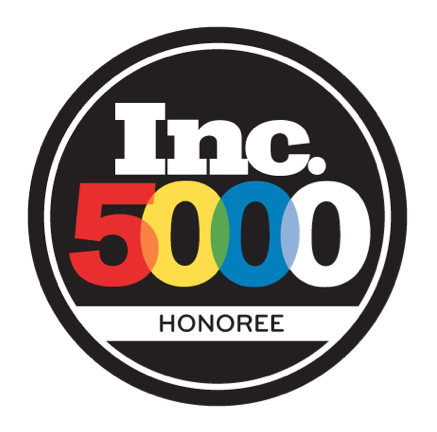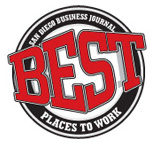 “Networking” isn’t just drinking a glass of chardonnay at a party while chitchatting about your job.
“Networking” isn’t just drinking a glass of chardonnay at a party while chitchatting about your job.
It’s also not simply handing your business card to someone and walking away.
And it certainly isn’t “connecting” with someone on LinkedIn without any sort of introduction or follow-up.
To be an effective networker, you have to put in the time and effort, do your homework, step out of your comfort zone, and avoid the common missteps many people make.
Here are 21 common mistakes that you should avoid while networking:
Dressing down
Looks matter, whether you like it or not. Before you can “wow” people with your impressive set of skills, you’ll need to awe them with your appearance and body language. “A networking event can be a dress rehearsal for a job interview, but no one will help you get your foot in the door if you give the impression that you’ll slouch through it once it’s open,” Dan Woog writes on Monster.com.
Body odors
This should go without saying, but as Rosalinda Oropeza Randall, an etiquette and civility expert and the author of “Don’t Burp in the Boardroom,” tells Business Insider, it’s important to be mindful of turnoffs like bad breath. “Instead of engaging in conversation with you, people will be thinking of ways to end the conversation,” she says. It’s best to take care of bad breath before you head into your networking event, since chewing gum can also leave a bad taste in people’s mouths.
Dismissing people who don’t look important
“You should behave here like everyone you interact with has the potential … to get you a cover story in The New York Times — because many of them do,” Tim Ferriss, author of “The 4-Hour Workweek,” previously told Business Insider. This came in handy at an event in 2007 when he was standing in line for a movie screening and asked a muscly man in front of him how he got such big forearms. They started chatting and Ferriss realized he was speaking with filmmaker Morgan Spurlock’s brother, who connected him with Morgan, who later used Ferriss as his subject for an episode of “A Day in the Life.”
Forgetting your nice business cards
When the opportunity to swap business cards does present itself, however, you want to be sure you have some quality business cards on hand. Spend the extra dollars on professional-looking business cards,Woog writes on Monster.com. If you don’t, Woog warns that you will have to endure the embarrassment that comes after you’ve made a good connection with someone and they ask you for your contact information and you have to write it on the closest napkin.
Only thinking about yourself
Everyone at a networking event needs something. “Networking can be described as the process of interacting or engaging in communication with others for mutual assistance or support,” career coach Yvonne Ruke Akpoveta advises on the blog of her consulting firm, OliveBlue. Networking is a “give and take” thing and going the extra mile to help others will help inspire other people to go the extra mile for you. “If you’re known as a person who can deliver, people are more likely to remember you — and more likely to reciprocate when you’re the one asking for a favor or a referral,” she writes.
Being vague
“I want to go back to school … maybe do something in the business world.” That is not the kind of summary contacts are looking for, Matthew Klobucher writes on GIjobs.com. He offers a better summary that includes specific skills and experiences: “I strongly believe in good products, which means good quality control. I did that in the military, and I’d like to do that in the civilian world. I’d also like to go to school to learn quality systems.” As a bonus, when you’re more specific, your conversation partner will have an easier time coming up with questions to ask you, he writes.
Reaching too high
Having Mark Cuban, Warren Buffet, or President Obama on speed dial would be great — for you. But would you really be able to offer them much help? Maybe … but probably not. It’s better to connect with people more on your level, Jeff Haden writes on Inc.com. “You may desperately want to connect with the top people in your industry, but the right to connect is not based on want or need. You must earn the right to connect.” Besides, the status of your connections doesn’t matter as long as you can help each other accomplish your career goals, he writes.

Butting into a conversation
Ferriss previously told Business Insider that his policy is: If two people are conversing at a networking event, then it’s rude to interrupt them — but if it’s a group of three or more, then you can politely ask to join the conversation. To smoothly enter an existing conversation, he recommends asking, “Hey guys, do you mind if I join you just to eavesdrop?” and then standby until someone says something you don’t understand. At that point, you should ask: “Could you clarify that for me?” Someone will hopefully ask who you are, giving you a window to make your introduction, Ferriss says.
Asking for too much
You shouldn’t ask someone you met once, briefly, to introduce you to their senior vice president, Sara McCord writes on The Daily Muse, nor should you ask them for a job … or to edit your résumé … or to “put in a good word” for you. Maybe down the road these requests will be more reasonable. But until you build a relationship with this person, you don’t want to ask too much of them.
Monopolizing someone’s time
A networking event isn’t a phone call or an email exchange, Woog writes on Monster.com — so give people space to mingle. Unless the other person seems genuinely interested and engaged in the conversation, make a rule for yourself: After introducing yourself and chatting for 10 minutes, thank the person for their time, slip them a business card, initiate a handshake, tell them how happy you are to have met them, and move on.
Loading up on free food
While some some networking events offer refreshments, Randall says this is not the time to load up on a free meal. “First of all, you’re taking more than your share,” she says. “Beyond that, you can be perceived as a free-loader, selfish, cheap, and that your priority is filling-up, not making connections.” Randall says she often recommends not eating at all at networking events. This allows you to focus on the purpose for being there, which is meeting new people and making connections. “You also diminish the chances of spitting on people; eating and talking don’t go well together,” she says. “Additionally, your hands remain unsticky, a good thing when shaking hands.” Second if you’ve got drama in your life, if you’re feel like the whole world is against you, or you’re attending a networking event to hook-up, you are not only wasting your time, but more importantly, you’re being disrespectful to those who are attending.
Hanging out on your phone the whole time
Yes, networking events can be especially challenging socially, and it’s so easy to start swiping away at your smartphone when you feel awkward and alone. But if you’re going to be antisocial, you might as well stay home.
Expecting a job
Getting a job might be more about who you know than what you know — but don’t be so obvious about it. People aren’t going to be inclined to help you if they feel like you are just talking to them because you expect them to help you find a job, Diane Kulseth writes in an article for The Daily Muse. “If you’re looking for a job, don’t ask for it — work for it,” she writes. How? By finding out how you can use your expertise to help them first, Kulseth writes.
Forgetting to follow up
First, you need to send a note thanking your new contacts for their timeso they are left with a positive memory of their interactions with you,Klobucher writes on GIjobs.com. Second, don’t drop the ball on anything you said you would do, from connecting two people, to sending over an article link. If you fail to follow through on your word, he writes, your contact will feel rejected and will probably no longer want to help you out.
Following up with a sales pitch
When you do follow up, don’t make it sound like a sales pitch. Before you ask for a favor, you need to develop the relationship further,Sue Clement writes on Businessknowhow.com. She recommends referencing something you spoke about at the networking event and then offering the person something they can use — whether that’s an introduction or a helpful article.
Abusing your network
If someone gives you permission to use them as a reference, handle that offer with care and don’t make them regret it, Ruth Mantell warns in an article for The Wall Street Journal. “Distributing your references’ contact information too frequently can lead to burnout,” she writes. In addition, she says if you do want to name-drop your new contact in the proper situation, make sure they actually have a good reputation in your community or the reference may work against you.
Forgetting to say, ‘Thank you’
Last, but certainly not least, is one of the biggest networking mistake that people make, McCord writes on The Daily Muse: Do not forget to thank your contacts, whether they’re able to help you or not. McCord says she remembers giving one of her interns a stellar reference that helped her land her first full-time job and waited in vain for a thank-you card or email. She gave her a pass since she was new to the professional world and sent her a congratulatory message, but says she still never got a response. “Forgetting to thank your contacts is discourteous,” she writes. “If it happens more than once, don’t be surprised if the next time you need a favor, you find that your contact is busy.”







